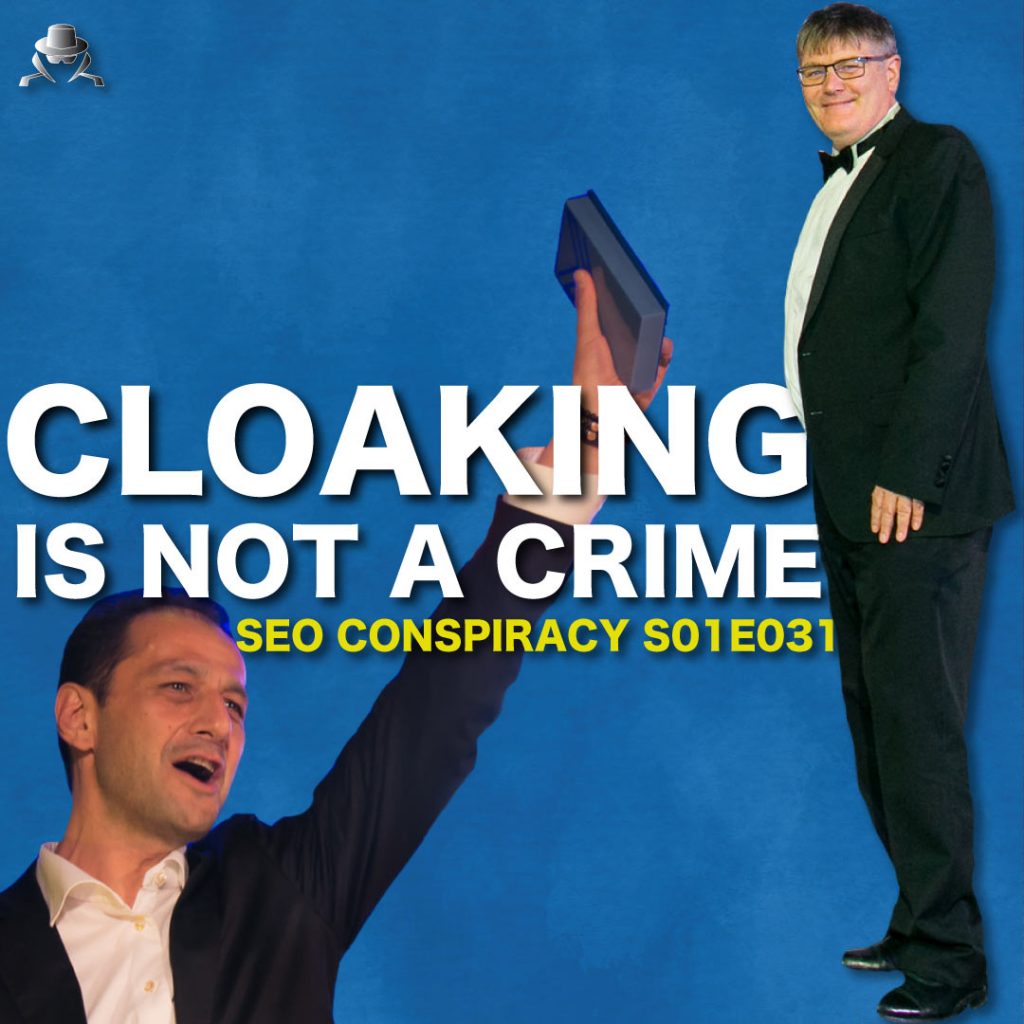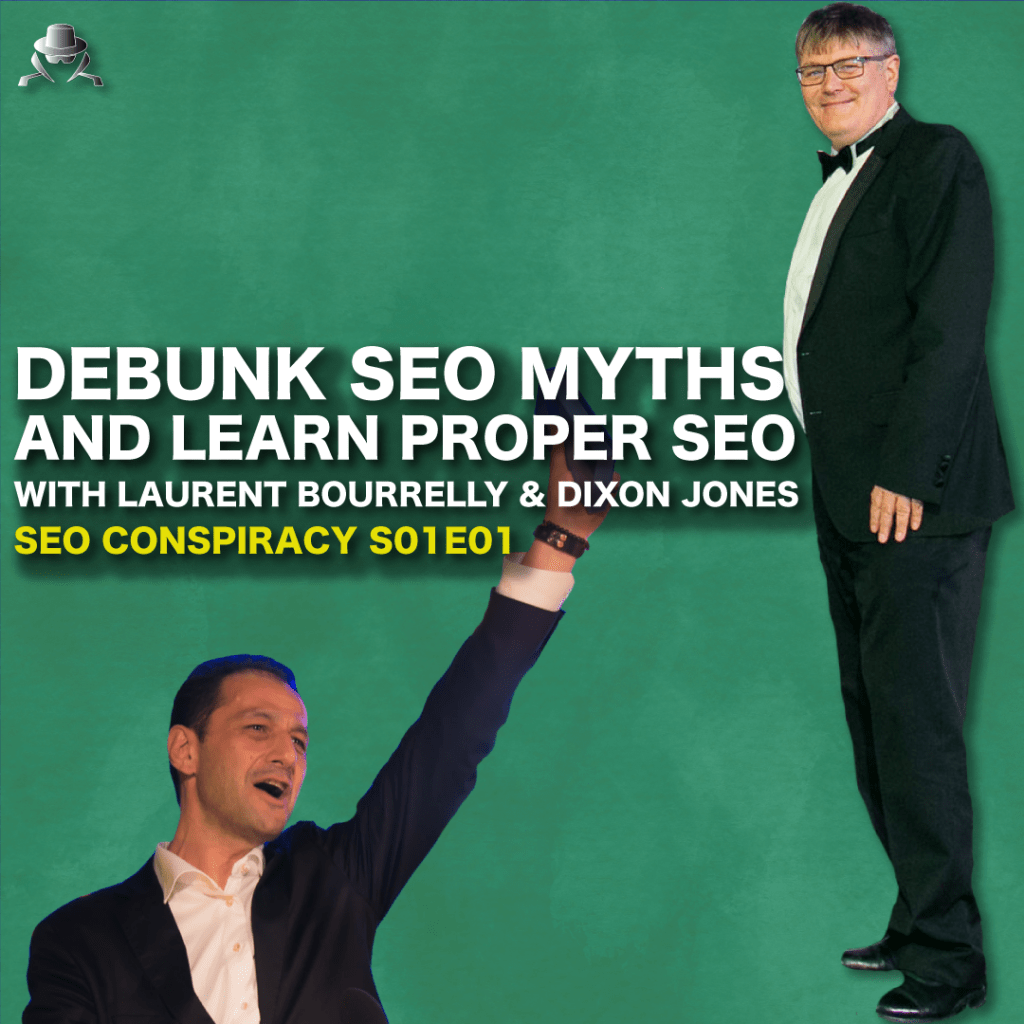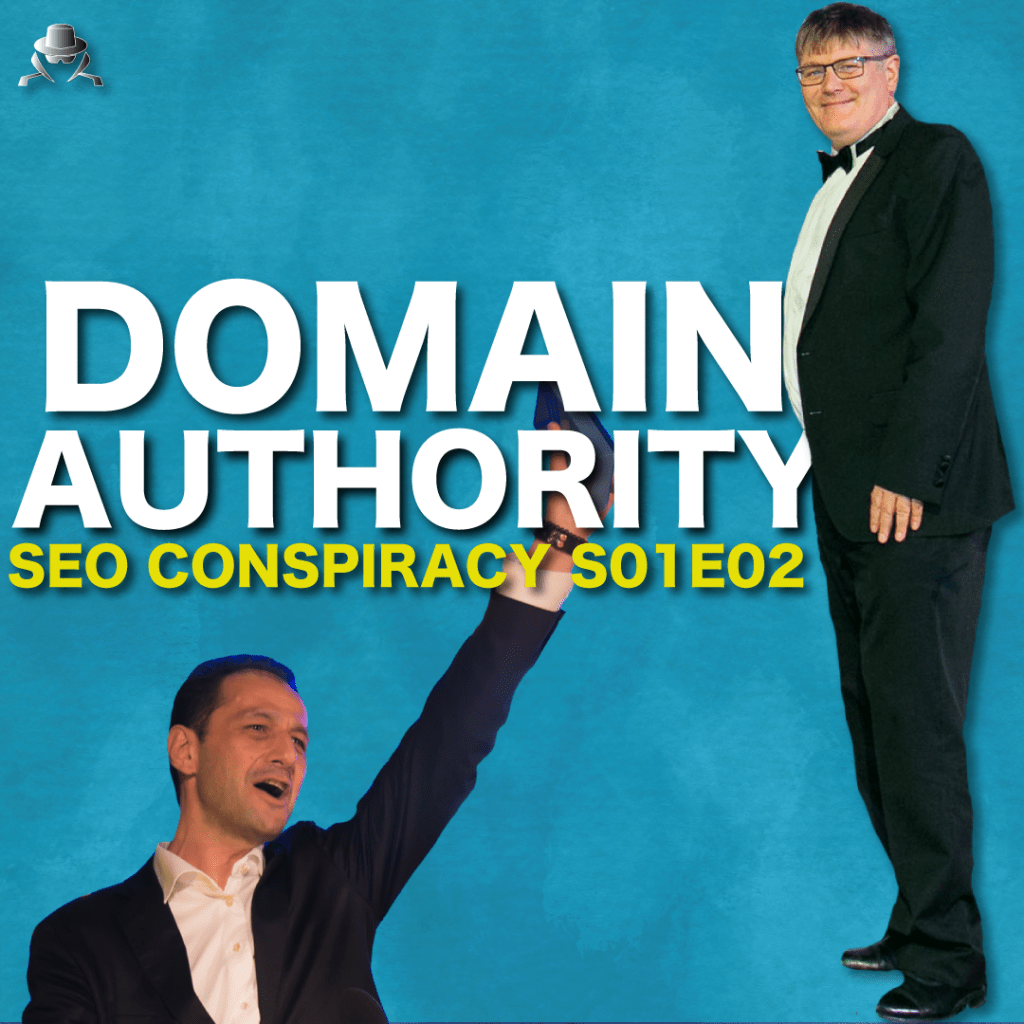Great topic today! Cloaking: is it only for the black hat?
Here, Dixon will wear a white hat, and I’ll wear the black hat.
Is cloaking only reserved for a black hat, or can you use it if you’re a white hat?
Dixon Jones’ story with cloaking
“It’s a good topic because I cloak and I have cloaked regularly.
Here is my story about the first time I ever cloaked. I wasn’t very clever. It was 2001, I think. I was trying to go for my first ever SEO sales meeting, and I went to a company called Fig Leaves, it’s a women’s underwear company.
I was trying to pitch for SEO and explaining what SEO was and why they needed it. I thought I did an excellent job; they were a local company or had their offices in a local place.
A couple of days later, I got an email saying that they’ve given the job to my competitors down in Brighton. There are loads of SEOs in Brighton. I was so annoyed that I went to a GoTo website, it was a pay-per-click search engine, and they had just come to the UK at this time. Then it turned into Overture in 2001.
So, I was so annoyed that I bought the domain womens-underwear.net
and did a 100% frame of their site (iframes didn’t even exist then). Then there was a whole load of ISPs that started to use GoTo because they get money from it. So I did 100% frames, paying like five pennies per click, and I phoned them up at Fig Leaves and said, “I’m sorry that you’ve given the business to somebody else. I’ve already got you number one on these two search engines. I directed some exact match search domains as well. And on these three search engines, you’re already number one. How have these guys in Brighton doing for you?”
That was blue-collar cloaking; it was cheap and simple, it wasn’t very clever at all.
I became a big affiliate, so I carried on doing that for quite a long time actually, just doing that. Also, I remember having to use cloaking for a ferry site because it used API feeds, so it was getting surrounded by different domains. Then you’re bringing in the same content, which is a booking search engine through API feeds or Javascripts and things like that. It was before Google was reading Javascript in the same way as now.
The thing is there are so many times when cloaking is appropriate.
Is cloaking ever justified in Google’s eyes?
When you go on the dark side, it is because you touch one single element of the content over the line. Even the ads, even the pop-ups. All the content. If you only touch the internal linking, the website’s structure, you can do a mobile version and a desktop version.
Forums have been cloaking since the nineties.
That’s working; you’re delivering different content to the desktop user, then you have the mobile user. It’s cloaking. But it’s white hat cloaking because it’s only the internal links, not the outbound links.
There are shady ways to cloak; you can easily have content that only appears on the mobile version or appears on the desktop version. But that’s borderline because imagine that you don’t display the ads or want to hide the affiliate links on the mobile version.
Well, Google might let it slide, but you’re already on the line because you shouldn’t present a different version of the content. And the ads are part of the content; the outbound links are part of the content.
You don’t want to deliver all those images; you don’t want to have all that extra variation. Also, if they let it slide, it’s because you don’t try to trap the user, you don’t try to lead the visitor into something it’s not.
That’s shady because you got food for search engines, and the user will see just one plain page with an excellent form, with a nice call-to-action, etc. And that’s wrong for Google, but it’s not illegal.
When is Google taking action about cloaking?
Is it in the algorithms, or is it a manual penalty?
There are three ways to cloak:
- The user agent: it’s easy. With a little Chrome extension, you can change yourself for Google bot, and you’re going to see the cloaking.
- The IP of Googlebot: but here, you have to stay up to date because of the IP changes. You got many listings of all the IPs that you want to include and not include. That’s tricky because if Google bot is by itself on the site, it’s like where the other ones are? And you might want to feed them still.
- The right way, the good way, the only one, is clicking on the host on google.com. If google.com is not the host, then you can’t see the content. But you got tricks to be able to see. For example, if you use the mobile rendering tool by google, you must be able to see the cloaking.
I gave my old cloaking codes to a student of mine, and he modernized them. Here’s the website: in-cloaking-veritas.com
You can learn by yourself; it’s three code lines, it’s so easy you won’t even believe it.
Cloaking for Geolocation
But there’s quite a lot of other ways in which you can cloak.
Cloaking for geolocation is a very legitimate reason, for example, for delivering different content for different countries.
The only annoying thing about that is if you do that, then Google can’t see the stuff in French and German.
So you’ve got to have some flat URL versions of each of the different languages as well.
But when the user comes to your page, and if you’ve got it in multiple languages, it’s much better to deliver it in the right language. And that’s just cloaking as well.
The other thing you do with cloaking is if you know who that person is.
For example, Facebook is cloaking on every single URL because when I go to Facebook, it knows who I am.
But if google tries to see it, Facebook doesn’t know who that person is.
So it’s different content, so cloaking it’s legit.
They’re going to penalize you if you want to make yourself appear different than what you are.
You have food for search engines, and then you got food for users.
Google doesn’t like that, but I think they’re used to think that if somebody’s delivering different content to the user than they are to google bots, therefore we’ll assume that it’s manipulative cloaking.
I think that’s gone by now. I think they realize that doing that there’s going to they’re going to catch so many legitimate websites in that process that they don’t do anything. They do it by hand, that’s why there are no algorithmic ways for them to sort this out.
When I use cloaking, the leading case is when I have to deal with the e-commerce website with a huge mega menu. I can’t entirely agree with this mega menu thing, but that’s another topic.
For my user, which is Googlebot, we’re not going to do that; we’re not going to show him this mega menu. So that’s cloaking. The human will see all those links everywhere, and the boat will see nice silos, and a nice architecture is done with precision.
Also, I hate the blog’s actual architecture, the way a blog like WordPress is built.
Listing by dates is suitable for a blog, a personal journal.
But for us, organizing the content by date has no semantic value.
So, is cloaking only for black hats or also for white hats?
Black hat use cloaking extensively. But if you use it for internal linking, that’s not a black hat, that’s white hat.
You can’t get penalized for that, and if you ever get penalized because you’re cloaking your inlinks, please call me.
Some cloaking of the content might seem legit like the mobile version
where you take out the ads. In the black hat world, that’s not allowed.
You’re doing it wrong if you ever want to go that way to be shady.
To have food for search engines and food for humans, you got to do cloaking on the host.
Honestly, the black hats right now have got new advantages since Google has had to relax some of its old-schools you know penalizations or at least the ones it finds algorithmically because everybody uses all manner of different methodologies to bring content into a page. Google can render the page now and suddenly finds that it’s completely wrong if they don’t render the page.
But you still can get that content changed in so many different ways.
It’s why black hats can get away with it much more than they used to.
That’s a perfect conclusion! Next week, we’ll talk about what is left of black hat SEO.
Watch the video:



